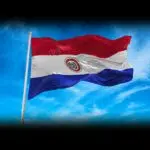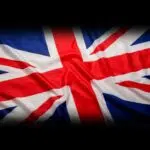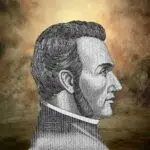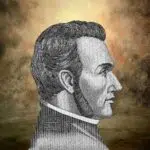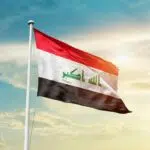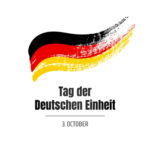Independence Day in Iraq is observed annually on October 3. Also known as National Iraqi Day, it commemorates the nation’s independence from Britain in 1932. Being a public holiday in Iraq, all offices, organizations, post offices, educational institutions, and major markets are closed. The people of Iraq celebrate the joyous occasion with military and civilian parades, ceremonies marked with speeches from political leaders, and official celebrations in every city, town, and village. The Iraqi flag — their symbol of identity, is proudly put on display, waved in parades, and hoisted on buildings. Firework shows begin on the eve of the national holiday.
History of Iraq Independence Day
The history of modern Iraq began in 1831 when the Ottomans gained control of the territory — establishing it as a valuable outpost of their empire. The region was not known as Iraq then, only a collection of three provinces: Basra, Baghdad, and Mosul, collectively called Mesopotamia by the British. The end of World War I brought about the triumph of the United Kingdom over the Ottoman Empire.
In 1920, the former Ottoman provinces of Baghdad, Mosul, and Basra became a League of Nations mandate under direct British control, known as the British Mandate for Mesopotamia. The new government provoked reactions from Iraqi people who disliked the imposition of British rule. In that same year, protests broke out in Baghdad, with large gatherings at Sunni and Shia mosques, which led to an armed rebellion. A British aircraft engaged the uprising and succeeded in silencing the revolt. The revolution subsequently led to the signing of the Anglo-Iraqi Treaty in 1922 — an agreement signed between the British and the Iraqi government that allowed Iraq to have Iraqi rulers but retained British control over the nation’s foreign policy. The treaty would set the scene for Iraq’s Complete Independence.
In 1921, Faisal I bin Al-Hussein became King of Iraq. He was appointed by The British to lead as a means of a safe compromise. Although Hussein was a British ally, he was also a man of the people. His family lineage could be traced back to the famed Prophet Muhammad, and he also partook in the 1916 Arab revolt against the Ottomans. On October 3, 1932, the Kingdom of Iraq became a sovereign state under King Faisal.
Iraq Independence Day timeline
The Ottoman Empire gains control of Basra, Baghdad, and Mosul.
Former Ottoman provinces of Baghdad, Mosul, and Basra become a League of Nations mandate under direct British rule.
The Iraqi people protest against the imposition of the British government.
The kingdom of Iraq gains independence from the British under King Faisal's leadership.
Iraq Independence Day FAQs
How long did Britain rule Iraq?
Britain’s direct rule in Iraq lasted 18 years.
How do they celebrate Independence Day in Iraq?
Iraqis celebrate their independence day with military and civil ceremonies, happy popular parades, and official processions in every city and village.
What was Iraq called in bible times?
During ancient times, the lands that now constitute Iraq were known as Mesopotamia.
How to Observe Iraq Independence Day
Engage in Iraqi national celebrations online
Participate by watching the commemorations and ceremonies in Iraq virtually. This is a good way to commemorate this holiday while learning about Iraqi culture. Let your friends know by sharing the latest nation-related news on the various social media platforms you may be signed onto.
Donate to help Iraqi war casualties
Help and support the civilians living in poverty in Iraq today to sustain their lives. There are many legitimate international organizations, including ones under the United Nations, to send your donation to give the support they need.
Study the history of Iraq
The history of Iraq dates back as far as between 6000 B.C. to 5000 B.C. It began as the ancient land of Sumer during the Neolithic Ubaid period of Mesopotamian history and is widely considered the oldest civilization in recorded history.
5 Interesting Facts About Iraq
Iraq is a desert country
Only 12% of Iraq's land is suitable for growing crops — the majority of the land is arid.
Home to earliest writing system
Iraq is home to the world’s earliest system of writing, cuneiform script — invented by the Sumerians and was first used around the 31st century B.C.
Three major ethnic groups
Although there are other smaller groups within the country, the three major ethnic groups in Iraq are Arabs, Kurds, and Turkmen.
Two official languages
There are two official languages in Iraq, namely Arabic and Kurdish.
Oil-based economy
The economy of Iraq relies on oil, which accounts for more than 90% of the government’s revenue.
Why Iraq Independence Day is Important
An occasion to learn more about Iraq
This holiday is an opportunity for us to learn about the life of people in Iraq. Get to know more about their history, cultural backgrounds, government system, economy, languages, ethnic groups, and current happenings in their nation.
Creating awareness about the war in Iraq
We get to raise awareness about the war currently happening in Iraq, and the condition of the civilians living there. By doing so, we contribute to making the public express more empathy for war refugees as we understand their painful experiences of surviving out of their own country.
Giving the Iraqi people a chance to be heard
With the ongoing conflict happening in their beloved country, the people of Iraq have a lot of untold stories. This is a chance for them to share their experiences and talk about the hardships they face — even now.
Iraq Independence Day dates
| Year | Date | Day |
|---|---|---|
| 2025 | October 3 | Friday |
| 2026 | October 3 | Saturday |
| 2027 | October 3 | Sunday |
| 2028 | October 3 | Tuesday |
| 2029 | October 3 | Wednesday |




